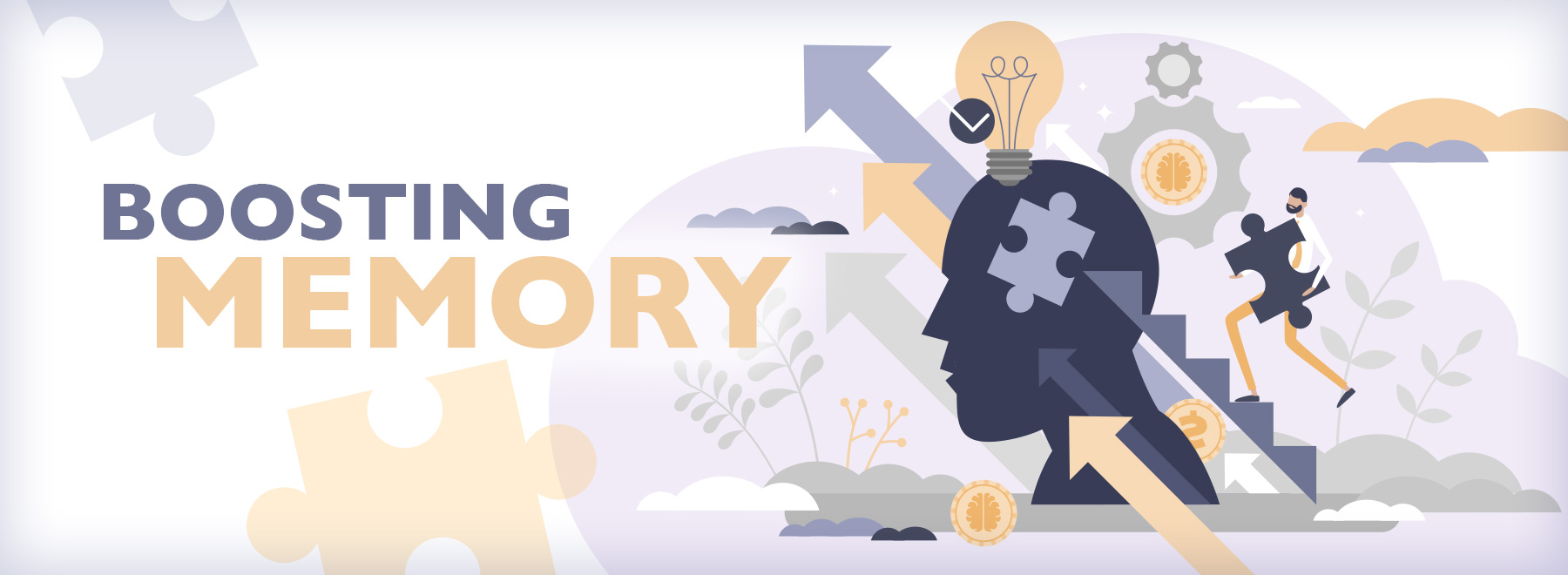Mental exercise strengthens memory, improves brain function
As we grow older, the changes we see that alarm us most may occur not in our bodies, but in our heads.
There may be a moment of panic when we suddenly can’t remember, say, where we put our car keys, where we parked the car those keys go with, or which one of our cars we parked there in the first place.
There may be a feeling of dread when we realize that, as our legs and reflexes start slowing down, our brain is slowing down with them, affecting our ability to remember and learn.
But this is not necessarily a reason for worry, experts at the University of Mississippi Medical Center say.

“Brain changes are a normal part of the aging process; the brain gets smaller,” said Dr. Kevin Sullivan, assistant professor of medicine and a researcher at The Memory Impairment and Neurodegenerative Dementia (MIND) Center.
“It’s not necessarily a disease. It’s not necessarily something to be stressed about. We walk slower when we get older too. There are a lot of changes that happen to us physically, and there are no exceptions for the brain.”
Still, there are steps you can take to slow down the brain’s slow-down, ways to at least compensate for memory loss once it occurs, and signs that tell you when your memory loss does need attention.
First of all, there is a type of memory loss to be concerned about, and it can be associated with disease, including Alzheimer’s and other forms of dementia.
Severe changes in your behavior, balance, movement and memory may signal the onset of Alzheimer’s, which is not a normal part of aging, the Alzheimer’s Association states.

“Often, it’s a family member who’s the first to notice that something has changed for you,” said Dr. Kenneth Butler, professor of medicine and lab director at The MIND Center. “Also, early on, people with Alzheimer’s can lose their sense of smell.”
Their sense of time and sense of place may also fade, “causing significant stress to your family, as well as to yourself,” Sullivan said.
“When that happens, when you’re forgetting the day of the week not just once a month, but several times a month, when you’re constantly forgetting names, it may be time to talk to your doctor.”
Before that happens, though, there are ways to reduce your risk of getting dementia or Alzheimer’s, Butler said.
“When it comes to conditions that affect memory, the main things we see in our research at The Mind Center are high blood pressure and type 2 diabetes, or high blood sugar. These can cause ‘brain fog’ and, therefore, your memory is affected.”
While memory loss as you age is not “100 percent preventable,” Butler said, “type 2 diabetes is reversible.” Which could help that brain fog lift.
“The best way to prevent diabetes is to reduce the amount of sugar you consume,” Butler said. “You should also reduce stress, keep your weight down and increase your activity, which you can do in many simple ways, such as parking well away from the grocery store entrance and walking.”
But don’t stop there. “Walking 45 minutes to an hour most days of the week is one of the best things you can do,” Butler said.
It’s also important to walk away from high blood pressure, Butler said. “This usually can be done with one or two medications.”
And get plenty of rest, he said. “Fatigue affects memory.”
As does depression, Sullivan said. “Depression, for sure, is potentially responsible for memory issues. Even starting a new medication can cause cognitive issues, and they can be completely reversible when that underlying cause is properly identified and handled.”
Organ-wise, the brain does not work in a vacuum. In that regard, it has no greater friends, or potential enemies, than the heart and stomach. Put good things in your stomach, and good things will happen to your heart and, it follows, your brain.
That includes putting in more water; after all, the brain is mostly a big, gray bundle of H20 .
“In general, you should just eat the best diet you can,” Sullivan said. “When you’re mindful of your future dementia risk, it’s about healthy eating. The Mediterranean diet is good for that, as is cutting down on empty carbohydrates, sugar and alcohol. You should cut out smoking completely.
“It’s about eliminating or cutting back all of those things increase the risk for later cognitive decline or dementia.”
For many people, though, any measure of memory loss, no matter how normal, is one mislaid car key too far. For them, Sullivan and Butler offer some strategies to lessen the pain.
“Use mnemonic devices,” Sullivan said. These memory tricks include, for example, a mnemonic for memorizing the names of the Great Lakes: HOMES: Huron, Ontario, Michigan, Erie and Superior.
You can also be kind to your memory by breaking down into smaller pieces a series of numbers or other desired chunks of information. “Like phone numbers,” Sullivan said. For example 601-815-4237 (The MIND Center number) is easier to remember than 6018154237.
“Sticking to a daily routine, being more mindful of where you place your keys or other objects, writing things down, making lists – all those things are helpful,” Sullivan said. “You shouldn’t feel bad if you’re using them.
“The argument may be: Are you improving your memory or are you compensating for memory loss? But if you can learn those strategies, you can get better at remembering certain things.”
The brain may also benefit from a cerebral version of Peloton. “Exercising your brain can be helpful,” Butler said. Give your mind a workout: learn another language, read challenging books, play or listen to music.
Stimulate your neurons with letter jumbles, cryptograms, crossword puzzles and more. Doing its part is the brain-friendly, philanthropic organization, The Dana Foundation, which offers “The Successful Aging & Your Brain Puzzle Packet,” Butler said.
“It’s part of The MIND Center’s education program.”
Boosting your social life may be just as crucial as ramping up your mental one. “Read to others, do volunteer work,” Sullivan said. “Participating in an aging research study is another way to stay active and cognitively working.
“I wish we could tell you there is one great thing you can do, but we can’t. Instead, we can recommend basic guidelines that we hope will provide you protection against some memory loss and cognitive decline.”
And that’s worth remembering.
The above article appears in CONSULT, UMMC’s monthly e-newsletter sharing news about cutting-edge clinical and health science education advances and innovative biomedical research at the Medical Center and giving you tips and suggestions on how you and the people you love can live a healthier life. Click here and enter your email address to receive CONSULT free of charge. You may cancel at any time.



